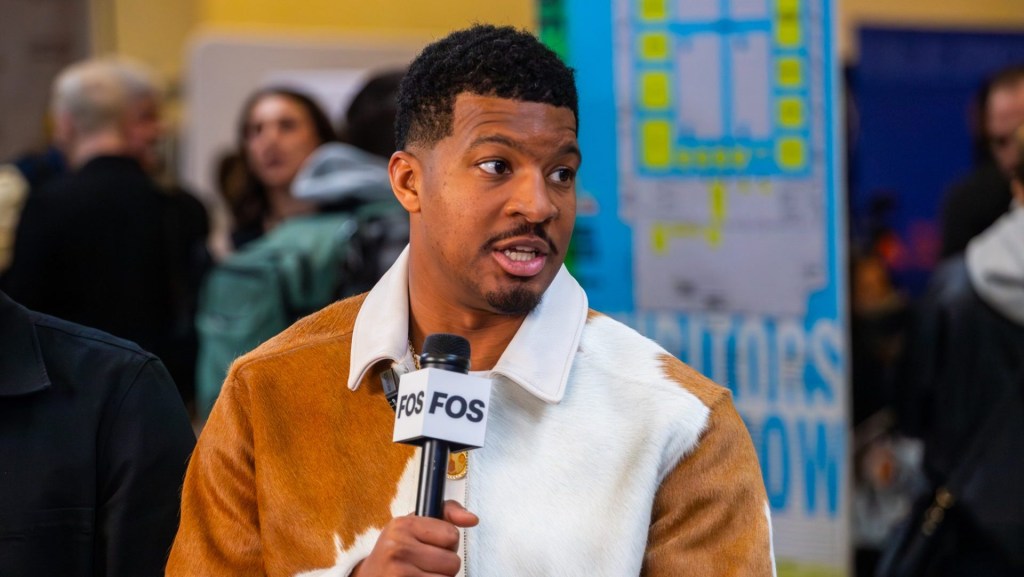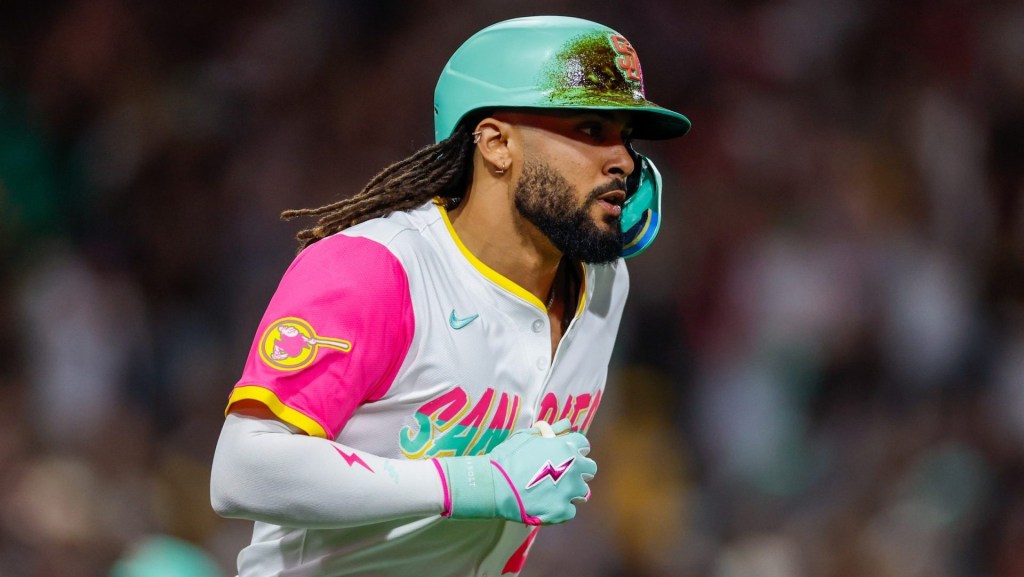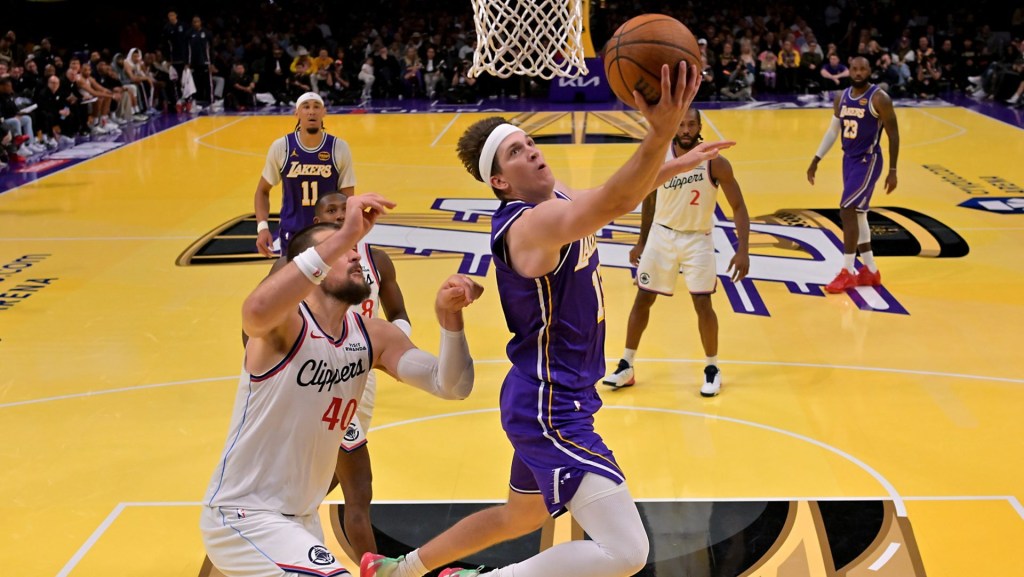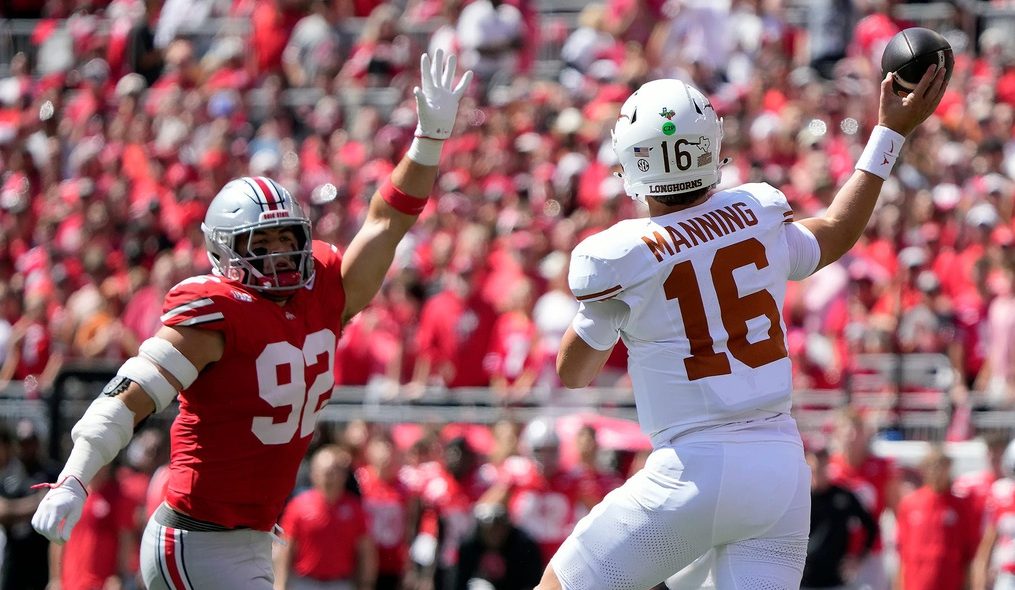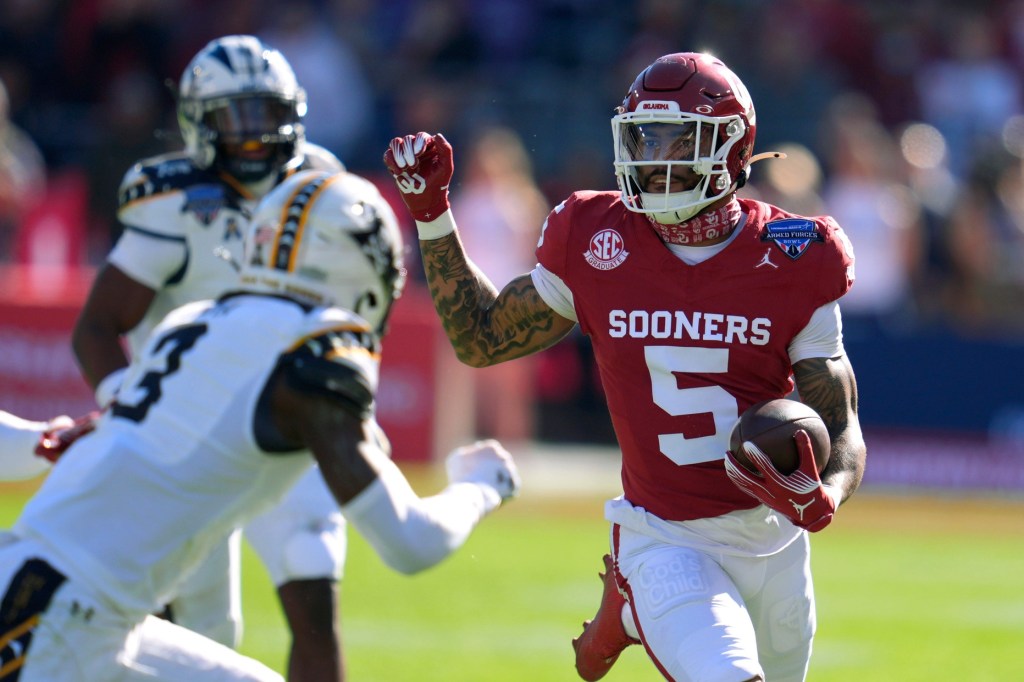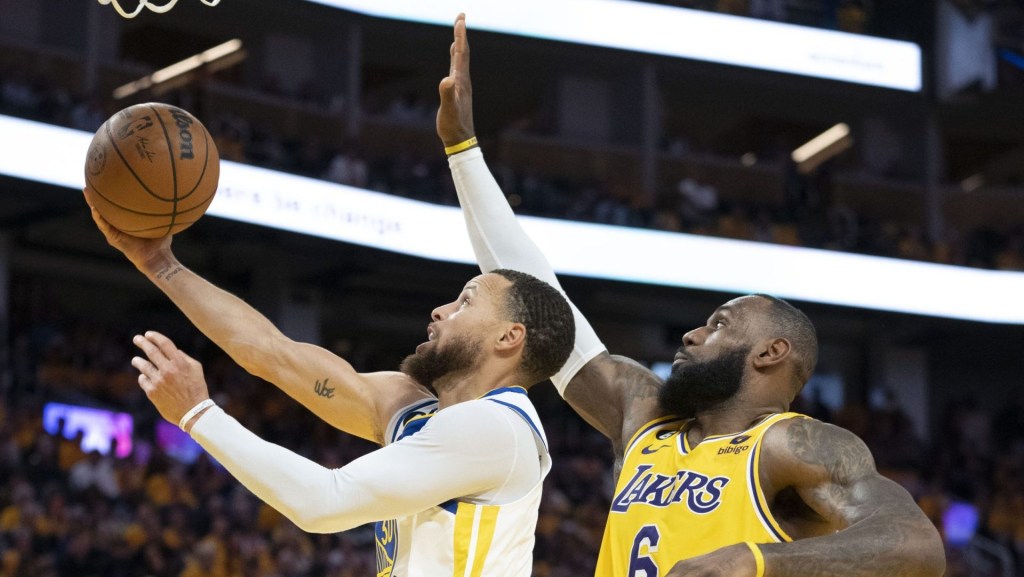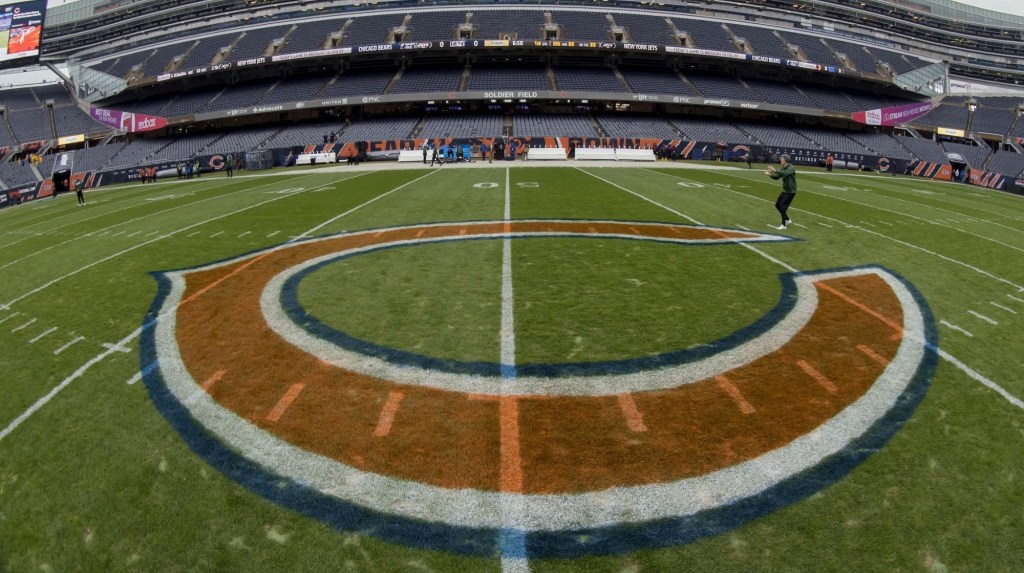By: Travis Gorsch, @tgorsch3

Front Office Sports is proud to have sat down with Ben Wilson, Play-By-Play Broadcaster for KRES Radio who was gracious enough to offer up his time and insight in to the behind the scenes preparation in play-by-play, being versatile on the job, and learning what you like and dislike early on in your career. Ben is a recent graduate of the University of Missouri’s Broadcast Journalism program. He has put together an impressive start to a promising career.
You recently graduated from the University of Missouri with a Bachelor’s Degree in Broadcast Journalism. As a student, you earned the right to perform play-by-play duties for all Mizzou Women’s Volleyball matches and select Softball games. How were you able to get your foot in the door?
For volleyball, I was the team’s official play-by-play man my junior and senior year through the Mizzou Network. For most of the schools’ Olympic Sports, the network generally used a rotation of students to call the games, but for volleyball, I found out that the team would actually choose one person to broadcast all of their matches and travel with the team on the road. I played a lot of volleyball throughout high school and know the game well, so I immediately thought calling matches for the team could be a great opportunity to get additional play-by-play experience as an undergrad.
Through calling games for KCOU, the student radio station at Mizzou, as a freshman and sophomore, I got to know the person calling games for the volleyball team at the time. He was two years older than me, and suggested I email the team’s SID [Sports Information Director] once his senior season of calling matches was over. Luckily, I had called a couple of volleyball matches for KCOU, so I had some samples on tape to send. The team’s SID, Shawn Davis, liked my tape, and told me the position was mine as long as I could coordinate my class schedule with the team’s travel schedule the following year.
Over those two years, I was able to call around 60 matches, and learned a ton. It was also great experience getting to build relationships with the players and coaching staff, many of whom I now consider good friends. And in terms of play-by-play, volleyball is one of the hardest sports to call, especially on radio, because of the speed of the game. I found that after calling all those matches, other sports like football and basketball were much easier to call and I didn’t feel like I had to rush to keep up with the action.
You seemed to stay busy even during the summer. In the summer of 2012 you worked as a Sports Intern for WISN-TV. How were you able to dedicate your time during the summers to separate yourself from other students who were on break?
I think it’s very important to use the summer wisely, especially if you are trying to break into the broadcast industry after graduation. For the most part, you are getting the same type of broadcast experience as your classmates during the school year, so landing an internship on your own can go a long way towards gaining additional experience that will really pay off down the road. I was able to intern with WISN in Milwaukee, my hometown, after my freshman year of college. Dan Needles is the sports director there, and gave me a lot of valuable advice that I was able to take back to Mizzou for my last three years there.
You had the opportunity to travel to Beijing, China for three weeks to write match recaps and stories for the China Open tennis tournament while you were in school. What was this experience like on the international scene? Would you recommend this experience to others seeking a career in broadcasting?
I think in general, studying abroad is a great opportunity. If you’re able to do it in college you should definitely do it. I’ve always wanted to study abroad and this was the only opportunity through the journalism school that involved sports, so I jumped at the chance to go and interview some of the best tennis players in the world.
From a journalism standpoint, the job was focused solely on writing. The tournament had both English and Chinese-language websites, but needed American writers for its English site and hired 10 of us from the Mizzou J-School. But while it had nothing to do with broadcasting, it was still great practice in terms of learning how to interview and interact with players. Also, an experience like that helps you feel comfortable around big-name athletes, since you have to ask them questions and try to get the most out of them for your stories. I’m also a big tennis fan and played a lot throughout high school, just like volleyball. So to get to ask questions to players like Djokovic and Nadal was kind of surreal, and I came back to the states with some great stories to share.
You were a Play-By-Play Broadcaster for KCOU Radio as well as a Sports Anchor, Reporter, and Producer for KOMU-TV for over three years during the same period. How does your approach preparing for these two positions differ? Are there any aspects that make one more difficult to prepare for than the other? How does reporting on events that have already taken place compare to calling games live?
For me coming in, I knew I wanted to eventually do sports play-by-play, but I had to figure out the right path to take in order to get the most out of my college experience. Mizzou is widely regarded as the top journalism school in the country, partly because they have the resources for you to do anything in journalism, whether it’s print, radio, or television. So even though I knew play-by-play was my ultimate goal, I decided to try pretty much everything and see what else I liked and didn’t like.
In terms of differences in preparation, television anchoring and reporting is much more scripted than play-by-play. When I would anchor at KOMU, I’d spend several hours writing scripts, cutting video, and creating graphics all for a three to four minute sports cast. By the time I went on air, I pretty much knew exactly what I was going to say and how long it would take. With play-by-play, you have no idea what is going to happen once the game starts and you have to be ready for anything. That’s what makes doing your homework and preparing so important.
After doing both, I realized how much I loved the ad-lib, live nature of play-by-play and the challenge of processing the action on the court or field as its happening. It was hard for me to really develop a passion for the anchoring and reporting side of things on TV as a result, but I’m still glad I had the experience at KOMU. I learned a lot from those three years and came out of it with a lot of good content for my reel, and a lot of great friends who are now spread across the country in their first jobs.
You are currently working for KRES Radio as a Play-By-Play Broadcaster. How is this role different than when you were first starting to break in to the industry? What responsibilities do you have that you may not have had before?
KRES Radio was my full time job out of school and I work roughly six days, fifty hours a week. For the fall sports season, I get to call a high school football game every Friday night and occasionally call small-college games in our listening area on Saturdays. We will also sprinkle in a softball or soccer game here and there, depending on how much interest there is from our advertisers.
What’s different about the role is that play-by-play is no longer something I’m only able to do on the side in addition to classes and other responsibilities — it’s actually my job now. Having said that, there are still a lot of things I have to do at the radio station throughout the day that are unrelated to play-by-play. Everyone DJ’s for a couple of hours each day, records ads, makes phone calls to school boards and city halls, etc. Luckily for me, doing everything I did as an undergrad helped me be prepared for all of those things on the side, and I think that really stood out during the hiring process. I made it very clear that I was comfortable doing anything and everything, and station directors want to see that versatility, especially when they’re considering hiring someone fresh out of college.
There has definitely been an adjustment period too, going from being a student to being fully employed. When you start putting in a ton of hours at work with very few days off, you need to be as efficient as possible with how you manage your time. That’s something I’m still working on and trying to get better at every day.
In your opinion what qualities does a person need to have to be successful in your field?
You have to have a great attitude and be willing to put in the work. There can be a lot of egos in this field, and as a young broadcaster, you have to do your best to get better each day and treat everyone with respect. You never know where a current co-worker or competitor will end up down the road and if your paths will cross again, so you can’t afford to burn any bridges. The broadcast industry is a lot more tight-knit and close than you would think — it seems like just about everyone knows each other.
And for actual play-by-play qualities, I think the more you make the broadcast about the players and the game, the better off you’ll be. Trying to be the center of attention and making the game about you takes away from the broadcast. It’s also a turn off for potential employers. Nobody wants to hear a young broadcaster who comes across on air as thinking he knows everything.
In talking to a couple broadcasters in the past they all seem to mention the large amount of time spent preparing. Can you take us through your preparation process? What sport is your favorite to cover and why?
The sport I prefer most is basketball because of the speed. It’s not too fast and not too slow. The sight lines are usually pretty good too, as you’re right on the side of the court most of the time. Football can be challenging because you’re high up in the press box and trying to follow 22 players on the field at once.
When I prepare for a football game, I’ll be on the phone for 30 minutes or so with the coach asking coaches questions about anything and everything I can think of, especially if it’s the first time we’ve covered that team in a season. This is especially important at the high school level, when you don’t have a lot of detailed stats or media guides to help you in your prep. Pretty much everything you get is going to come from the coaches, so it’s imperative you get a lot out of those conversations.
The next element is making your spotting boards. I spend several hours per game making mine and use InDesign to make them. I’ll create four pages, with each team’s offense and defense getting a page. After I print them out, I’ll staple them to a legal-sized folder so that I have everything in one spot. When you are in the middle of a broadcast, it’s essential to have all the information you need right in front of you. You don’t want to be shuffling around a bunch of papers trying to find a stat or note during the game.
Preparation is just as important as the broadcast itself. The quality of the broadcast will almost always reflect how prepared you are. The last thing you want is to be thought of by listeners or viewers as someone who hasn’t done his homework. It’s impossible to just show up at the game, grab a couple of rosters, and broadcast in a professional manner. I think that’s the one thing people don’t necessarily realize, especially because it’s all done behind the scenes.
What has been your most memorable broadcasting moment in your young career?
If I had to pick one, it would be the Florida-Mizzou match in Columbia my first year calling matches for the volleyball team. The team was coming off a down year, and so expectations weren’t all that high. Then the season started and the girls were totally in sync, beating everyone. Before we knew it, the team had cracked the top 25 and was still undefeated, just in time for a match against perennial SEC powerhouse Florida. The Gators were ranked 2nd at the time and nobody gave the Tigers a shot, despite the game being in Columbia.
Then Mizzou came out and won in four sets in front of a raucous crowd, and would go on to win the school’s first SEC Championship with a 35–0 regular season. It was a great experience just getting to call an upset of such magnitude like that, and after the match, Shawn Davis, our SID who I mentioned earlier, told me we had nearly 2,000 people watching our broadcast. The highlights posted on YouTube with my call of the match got nearly 1,500 views in the following days, and the volleyball team was the talk of the campus. That whole season was just crazy, and I never thought I’d have that kind of experience. Going in, I was under the impression that as the team broadcaster, I was going to be heard and not seen. But I ended up creating great relationships with the coaching staff and players, and learned a lot about the in’s and out’s of being a team play-by-play broadcaster.
Do you have any mentors in the broadcasting world that you look up to?
I mentioned Dan Needles earlier, who I interned for at WISN in the sports department. He’s been someone who has always been there for career advice and who taught me a lot back when I was a freshman in college and relatively clueless.
Adam Amin is a younger play-by-play guy who a lot of us young broadcasters look up to because of how much success he’s had early on in his career. I met Adam while calling volleyball matches for Mizzou my senior year. Despite having a very busy schedule, he went out of his way to give me a detailed critique, which not many broadcasters at the network level will do.
Someone else I really look up to is Paul Sunderland. Paul was an Olympic volleyball player and is considered one of the best volleyball voices around. When giving me play-by-play advice, he brought up a lot of things I hadn’t thought about before that gave me a lot of clarity. Paul has decades of broadcast experience in volleyball, as well as basketball as the TV voice of the Lakers for several years, so every time I’ve been able to talk to him about broadcasting, it’s given me a ton of insight.
Those are some of the main guys in the industry I’ve met who I really respect and thank them whenever I can for taking the time to critique my work and give advice. It’s certainly not something any of them need to do, but the fact that they do means a lot.
Parting wisdom?
The only thing I’ll add is in terms of actually networking. Networking is more about building relationships then strictly networking. When you reach out to people in the industry, it’s essential to do so with respect and to show them that you actually care and that you want to improve yourself. Networking can be intimidating, and there is definitely an art to it, but it is just as important as actually improving yourself as a broadcaster.
We would like to thank Ben for his time and insight and we wish him the best in all his future endeavors!
You can follow him on Twitter here, or connect with him on LinkedIn here! Interested in seeing Ben’s experience? Check out his Sportscaster Talent Agency of America (STAA) page here!
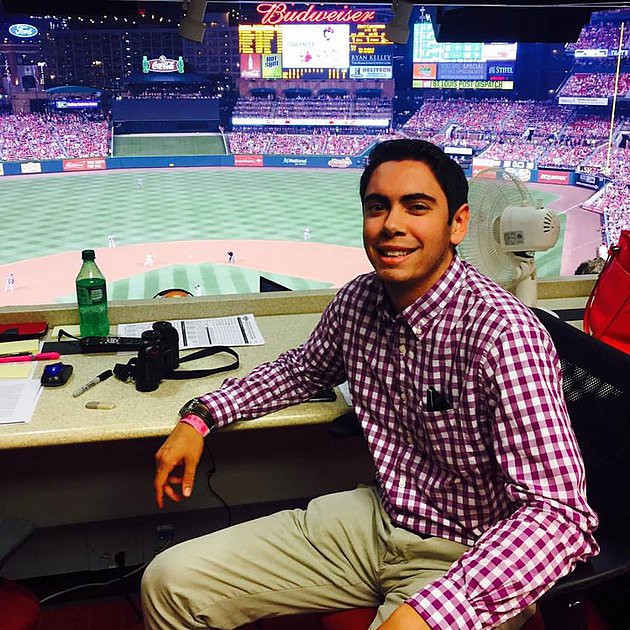



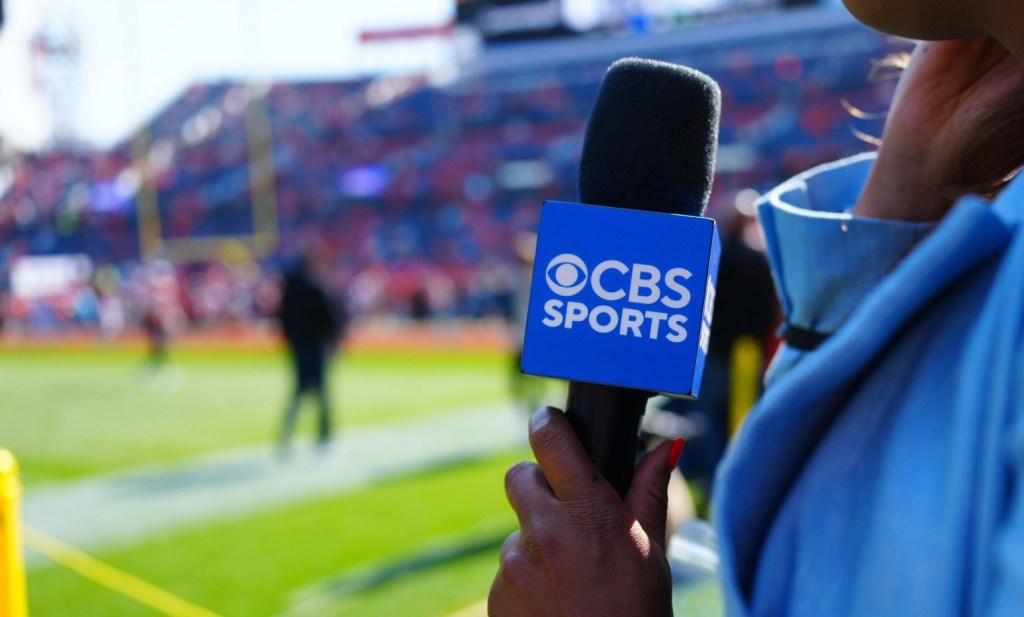
![[Subscription Customers Only] Jun 15, 2025; Seattle, Washington, USA; Botafogo owner John Textor inside the stadium before the match during a group stage match of the 2025 FIFA Club World Cup at Lumen Field.](https://frontofficesports.com/wp-content/uploads/2026/02/USATSI_26465842_168416386_lowres-scaled.jpg?quality=100&w=1024)
![[Subscription Customers Only] Jul 13, 2025; East Rutherford, New Jersey, USA; Chelsea FC midfielder Cole Palmer (10) celebrates winning the final of the 2025 FIFA Club World Cup at MetLife Stadium](https://frontofficesports.com/wp-content/uploads/2026/02/USATSI_26636703-scaled-e1770932227605.jpg?quality=100&w=1024)


